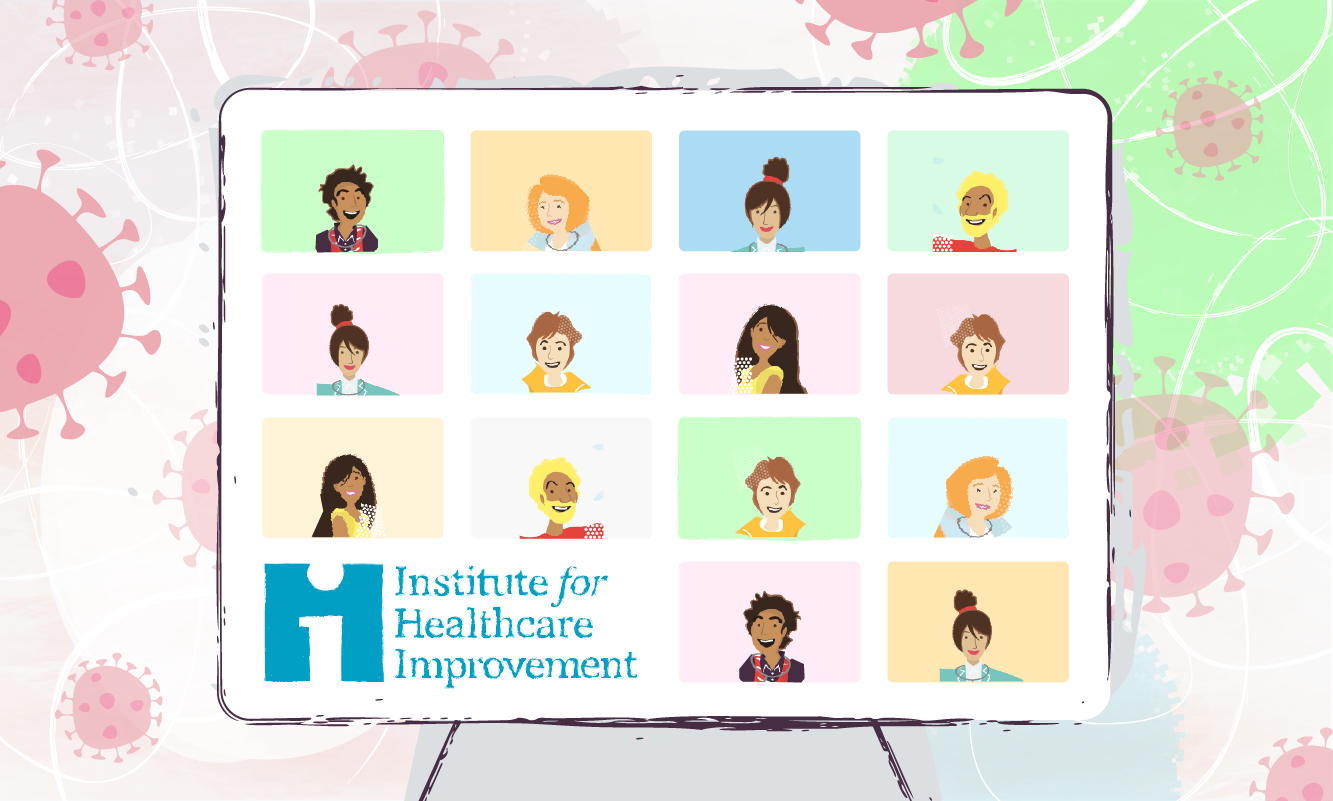Start improving with Life QI today
Full access to all Life QI features and a support team excited to help you. Quality improvement has never been easier.

Organisation already using Life QI?
Sign-up

Earlier this week I joined the latest in the series of webinars being run by the IHI on COVID-19. The webinars are proving to be hugely popular and serving as a great mechanism for enabling sharing and accelerating learning around the pandemic. This week’s instalment was hosted by Pedro Delgado and Susan Hannah and featured superstar guest speakers Dr Amar Shah and Dr Dominique Allwood.
Here are my takeaways on leveraging organisational learning to harness opportunities from COVID-19 …
Amar shared the three phases East London NHS Foundation Trust (ELFT) is working through:
They are currently deep into the second phase and beginning to tackle questions like – ‘how do we re-create camaraderie virtually’?
The takeaway here was the importance of the third phase - using learning to shape our future. We need to ensure we harness the lessons from this rapid period of change to prepare ourselves for a new normal, and any future pandemics.
The ELFT QI team have seen plenty of examples of QI in action as part of the response. Ten such stories are included in their latest newsletter, and Amar shared a few examples on the webinar which included: PDSA testing, supporting teams with virtual working, Driver Diagrams to formulate new strategies, digitising processes, applying measurement over time, and storytelling.
Whilst many formal QI programmes have been paused to focus on COVID response. It was encouraging to hear great examples of improvement techniques being applied outside of the typical improvement project environment. Daily improvement and rapid improvement.
In the spirit of all share all learn, the ELFT QI team have developed and are freely sharing a couple of resources they are using during this time as they assess the changes that have been made and plan for the future:
There was plenty of interest in the Learning System that has been implemented by Dominique Allwood, James Mountford and colleagues at the NHS Nightingale Hospital London (the first and largest of the UK’s Nightingale hospitals).
Dominique described how the Bedside Learning Coordinator acts as the conduit for feeding insights into the learning system, then implementing changes from learning system into practice. This seemingly simple approach is allowing the team there to learning fast and act quickly.
With plenty of questions from the attendees Dominique went on to describe how they are drawing on diverse backgrounds to ensure the Bedside Learning Coordinators bring a wide and rounded perspective to the role. BLCs have included Pharmacists, AHPs, OTs, Speech and Language Therapists, amongst others.
The Nightingale learning system is categorising insights from the bedside into: Fix, Improve, or Change. Each category results in a different tempo and approach but is allowing the Learning and Quality team to ensure insights are dealt with in the most effective way.
Fixes often result in very rapid minor alterations. Improvements generally take a little longer and Changes likely requiring more serious consideration and design work.
Could these categories be more broadly applied to our improvement work beyond COVID-19...?
Both Dominique and Amar highlighted that during this period of rapid change, staff are doing improvement intuitively - without the need for formal improvement language, and without being asked to ‘do improvement’.
Perhaps COVID-19 is a useful reminder that the improvement mindset is commonplace amongst healthcare workers. We are fortunate to be cared for by people who are intrinsically motivated to do the best they possibly can to improve health and healthcare. This pandemic has certainly reminded me of that and proven just how quickly healthcare organisations can adapt when they need to. I hope we continue to remember this long after COVID-19.
Thank you IHI for yet another fascinating learning and sharing session. Big thanks to Pedro Delgado, Amar Shah, Dominique Allwood, and Susan Hannah for taking the time to share with the improvement community.
Full access to all Life QI features and a support team excited to help you. Quality improvement has never been easier.

Organisation already using Life QI?
Sign-up